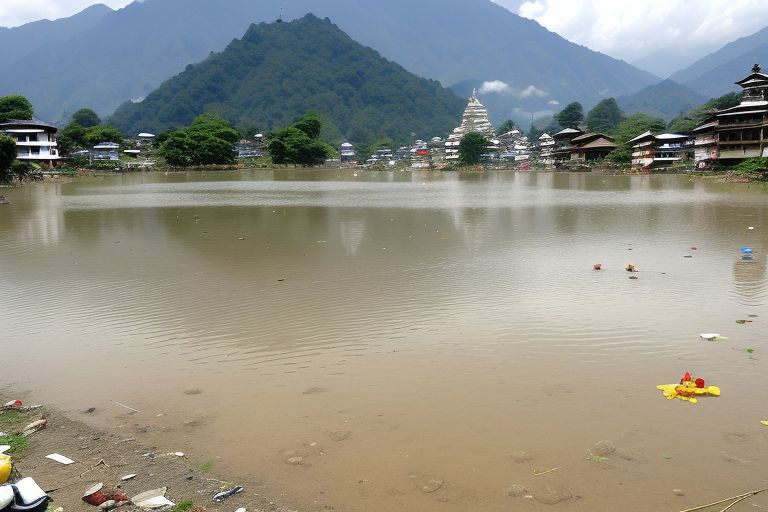According to the Epidemiology and Disease Control Division, Pokhara and its adjoining areas are badly affected by the Dengue Virus. This health issue has especially focused on the Gandaki Province, particularly the Kaski and Tanahu districts, as the maximum number of dengue cases has been reported in recent weeks. Local health authorities are struggling to prevent the virus from spreading further, as locals begin to get worried.
The increase in incidence of dengue viruses is happening at a time that the region is facing political instabilities and it will make managing the disease difficult in the city. Dengue fever is assuming the stage of an epidemic in the Pokhara area as the local health facilities are filled with patients coming down with symptoms of the disease. The occurrence has led health authorities to walk around alerting the public on how they can avoid the infections and when to seek medical attention.
A vector control program has been launched in Pokhara by the local government in an effort to curtail the spread of the diseases. These are, for example, fogging activities conducted more frequently in vulnerable districts, provision of mosquito nets, and mobilization to discourage the breeding of pests. Community health staff are visiting households in the affected areas with the necessary messages, we are reminding the community on need to keep the environment clean and proper dispositions of water to avoid mosquito breeding.
This is particularly disheartening since the timing could not have been worse at a time when Pokhara was receiving a lot of tourists during the tourism season. The city, which is famous for its lakes and mountains, usually attracts visitors at this particular time of the year. Nonetheless, the dengue fever threatens to affect tourism as some tourists plan to avoid the country due to the disease. Tourism operators are in contact with health departments to ensure that necessary precautions have been taken and to assure the traveling public about measures that are in place to contain the spread of the virus.
The healthcare professionals of the Pokhara Valley are especially stressed regarding the timely identification of dengue cases and subsequent treatment. They are asking residents to go for an early check-up if they show signs like a high fever, severe headache, especially on the rear part of the head, sore throat, pain when moving muscles and joints, nausea, vomiting, especially if you have enlarged neck nodes or skin rash. The local hospitals have been inaugurating dengue wards to help the increasing number of cases through a proper channel.
The pandemic has also exposed the region’s need for sustained development of structures that support the well-being of populations. This is creating pressure on the local health authorities to seek more funding and support directed at disease early detection, vector control, and sundry community health promotion initiatives. It is becoming increasingly evident that just providing a solution to the problem remains restricted to stopping the outbreak and controlling the dengue menace.
Following the change of the situation, one is able to feel tension among the people of Pokhara. Local authorities are now recruiting people for a cleaner-up drive and raising awareness campaigns showing the city’s preparedness to this health menace. The local media emerged as important sources through which the appropriate message about the outbreak can be delivered.
This paper discusses the outbreak of dengue in Pokhara as a reminder to the existing and emergent public health issues with rapidly urbanizing cities in Nepal. With development and increasing number of tourists, the health care systems and the means to prevent diseases in the city are especially evident. It remains unclear whether the existing actions will help stop the epidemic and prevent its spread to the other regions of the state in the coming weeks.


